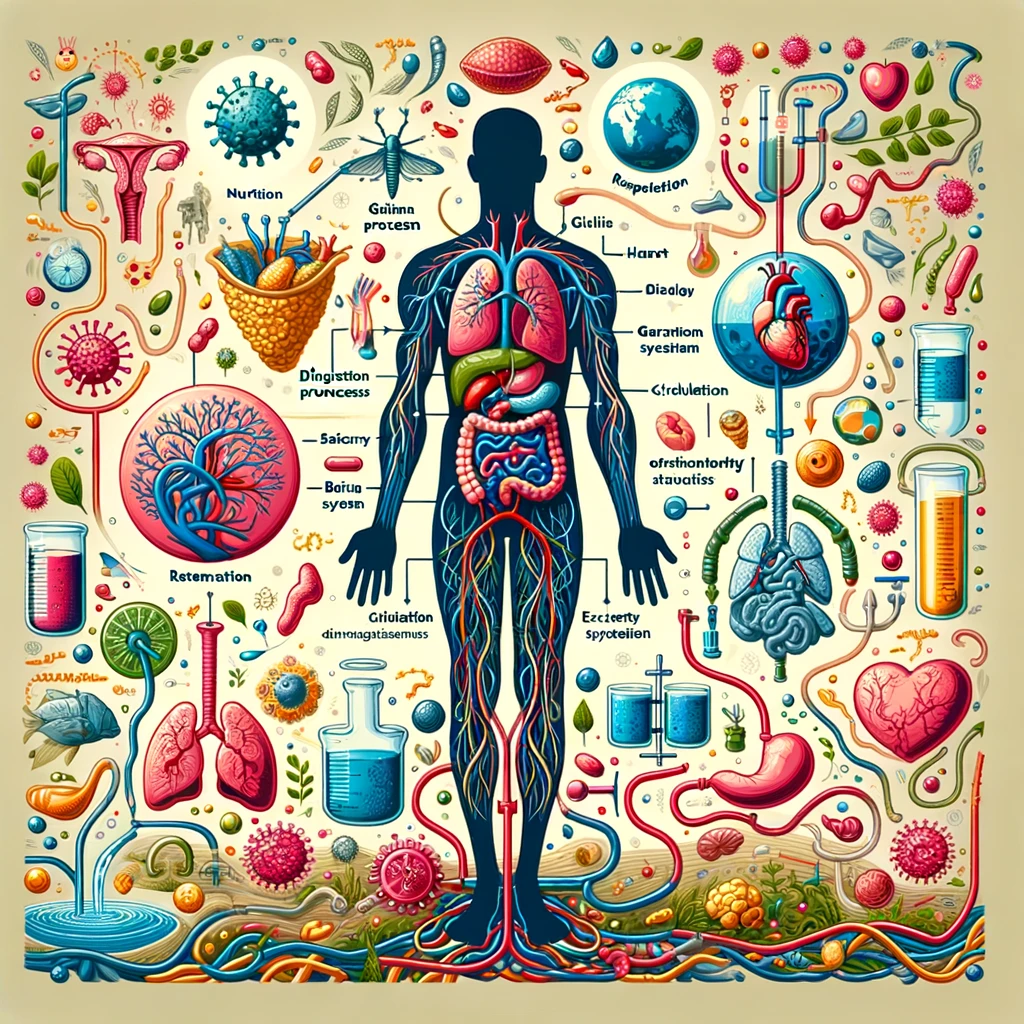
Exploring Life Processes: The Essential Functions of Living Organisms for Class 10 Science

Understanding Life Processes
Introduction
Life processes refer to the basic vital functions performed by living organisms to maintain their life. This chapter delves into the mechanisms and significance of these processes, highlighting how they are crucial for survival and reproduction.
Section 1: Nutrition
Nutrition involves the intake and utilization of nutrients by organisms. It is classified into autotrophic nutrition, where organisms synthesize their own food (e.g., photosynthesis in plants), and heterotrophic nutrition, where organisms depend on others for food.
Photosynthesis
- Process: Conversion of light energy into chemical energy in plants, producing oxygen and glucose from carbon dioxide and water.
- Equation: (6CO_2 + 6H_2O + \text{light energy} \rightarrow C_6H_{12}O_6 + 6O_2).
Human Digestive System
- Function: Breakdown of food into simpler forms for absorption and use by the body.
- Components: Mouth, esophagus, stomach, intestines, and associated organs like the liver and pancreas.
Section 2: Respiration
Respiration is the process of releasing energy from food substances in cells. It includes aerobic respiration, requiring oxygen, and producing a significant amount of energy, and anaerobic respiration, occurring without oxygen, producing less energy.
Aerobic Respiration Equation
(C_6H_{12}O_6 + 6O_2 \rightarrow 6CO_2 + 6H_2O + \text{energy})
Section 3: Circulation
The circulatory system transports nutrients, gases, and wastes to and from cells. In humans, it consists of the heart, blood vessels, and blood.
Human Heart
- Function: Pumps blood throughout the body, supplying oxygen and nutrients while removing carbon dioxide and wastes.
Section 4: Excretion
Excretion is the process of removing metabolic wastes from an organism’s body. In humans, the primary organs involved are the kidneys, which filter waste products from the blood.
Section 5: Coordination and Control
The nervous and endocrine systems play key roles in coordination and control, ensuring that various functions of the body are synchronized.
Nervous System
- Components: Brain, spinal cord, and nerves.
- Function: Transmits signals to and from different parts of the body.
Endocrine System
- Function: Produces hormones that regulate body functions, such as growth, metabolism, and reproduction.
Conclusion
Life processes are fundamental activities that define living organisms. Understanding these processes provides insight into the complexity of life and the intricate balance required for survival.
Call to Action
Explore the marvels of life processes through observation and experimentation. Engage in activities that highlight the interconnectedness of these processes and their importance to life.